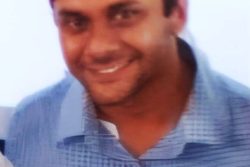Dear Editor,
On January 11, 2009, I watched the last thirty-five minutes of Ms Wanita Huburn’s programme called ‘Our Life, Our Culture’ on NCN Channel 11 with guest Guyanese musician/ singer/ songwriter Mr Dave Martins of the Tradewinds.
While I was listening to the programme Ms Huburn asked Mr Martins why it was so difficult for Guyanese artistes to make it in the world of music today. Mr Martins said it was difficult not only for Guyanese, but for Americans and Jamaicans.
Do you know how many records are made in Jamaica and America every week? Jamaica releases 500 a week and America thousands a week. So you see the problem that Guyana has if they are only making a few songs every month?
Ms Huburn then said to Mr Martins that he had spoken about the influence of Bob Marley, Black Stalin, Edwin Yearwood and David Rudder and they were all from Trinidad except for Edwin Yearwood of Krosfyah, who was from Barbados. How come, she said, he hadn’t talked about Eddy Grant and if he had influenced Mr Martins in any way. Mr Martins replied that he didn’t have a problem speaking about Grant since Grant was the only international superstar that had come out of Guyana, but Eddy Grant was in a different genre, which was pop music.
I thought it very strange that these words were coming from Mr Martins because he should know that Grant’s music has always had a strong Caribbean influence since he started with the Equals in the mid-sixties. If Do you feel my love, Living on the frontline, I don’t wanna dance, Gimme hope Jo’Anna and all the rest are not influenced by the Caribbean, then I don’t know what music is all about.
Would Mr Martins then say to the Jamaican people that Bob Marley was a pop artiste and would he also tell them that Is this love?, Three little birds, Could you be loved, and One love are pop songs and not reggae songs?
I don’t think so, because they would crucify him in the media. Bob Marley to the Jamaicans is a reggae god, and whatever he plays and sings is reggae music − that’s his genre − but Eddy Grant is multidimensional. He plays pop, reggae, soca, calypso, rock, ringbang and soul, and he has had international hits in all of these genres. How can he then say he is just a pop artiste? Show me one artiste in the world who has had a hit record in all of these genres? You see Mr Martins, the people in Guyana are led to believe everything that is good comes from outside.
I would like to say to Mr Martins, let’s throw away all of Eddy Grant’s so-called pop hits like the 1968 No 1 Baby come back, the 1982 No 1 I don’t wanna dance, the 1982 No 2 Electric avenue and all of the other hits, and let us move back to the mid-seventies in the Caribbean, especially Trinidad.
Eddy Grant left the Equals in the early ’70s to branch out on a solo career which started in the Caribbean and made him a household name in Barbados, Trinidad, Guyana, St Lucia and the other islands with his hits such as Hello Africa, Neighbour neighbour, Race hate, Walking on sunshine, which was covered by the American group Rocker’s Revenge, and reached to No 4 in the British charts selling 400,000 copies, and the ever sweet Say I love you, which was also covered by Renee Geyer and went to No 1 in Australia and New Zealand. Not forgetting the 1994 reggae version of Baby come back recorded by UB40 and Pato Banton that went to No 1 on the British charts and sold over a million copies. These songs, Mr Martins, launched Grant’s solo career from the Caribbean to Africa and then to the rest of the world and not the other way around, as people would be led to believe.
Eddy Grant has always thanked the people of the Caribbean for the support they all gave him in the mid-seventies in making him a very successful solo artist.
Let me shine some more light on the subject. When Eddy Grant landed in Barbados in 1981 to live, Bajans were dancing to 60 per cent soca, Trinidad 30 per cent reggae Jamaican and 10 per cent soul American; Grant changed all of that by producing the Mighty Gabby and Grynner, giving Bajans back their musical pride. Bajans now don’t have to dance to Trini voices and music any more. A few years later the Bajans invaded Trinidad with pure Bajan voices like Gabby, Grymmer, Ras-iley, Red plastic bag, Krosfyah, Rupee and Alison Hinds.
Grant being a Caribbean man produced two road march winners: for Super Blue in Trinidad Bacchanal Time, in 1993, and Signal to Lara in 1995. So before we let go of Mr Eddy Grant and his pop genre let’s not put him in one bag; he belongs to everywhere, where he can play, produce and write in his own style.
Before I go, I would like to let Mr Martins know that one of Jamaica’s national anthems for Rocksteady music that rocked the Caribbean, England and most of the world ethnic wise, and was sung by one of Jamaica’s superstars, Prince Buster, in the late ’60s was written by Eddy Grant, and it was called Rough Rider. Please, Mr Martins, don’t forget the Ringbang music that Grant created in the Caribbean in the ’90s.
Yours faithfully,
Rudy Grant









